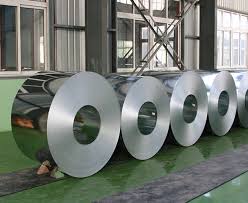
The Benefits of Importing Aluminum from Korea
The growth of aluminum export koreareflects the growing role of Korea in the global aluminum market. As Korean manufacturers continue to enhance their manufacturing capabilities and meet international demands, several significant trends and data point out the rapid growth of this industry.
1. Technological Advancements: korean aluminum distributor are at the forefront of technological innovation using advanced manufacturing processes as well as state-of-the-art equipment. This includes high-quality rolling mills, advanced alloying methods, and advanced quality control methods. Such advancements enable Korean suppliers to make premium aluminum products that are in line with stringent global standards, driving increased export opportunities.
2. Growing Demand in Key Markets: Exports of aluminum from Korea have increased because of the increasing demand in major markets like the United States, China, and Southeast Asia. Industries including automotive, aerospace as well as construction, are now seeking high-grade aluminum products from Korean suppliers for their highly advanced applications. The country’s ability to supply aluminum products in the form of standard or customized products is a boon to a wide range of industry needs, fueling export growth.
3. Strategic Trade Agreements Korea uses strategic trade agreements in order to boost the export of its aluminum. Free trade agreements (FTAs) with a variety of nations and regions have led to better trade flows and reduced tariffs, making Korean aluminum-based products better competitive on international markets. These agreements improve the trade relations of Korea and help to support the growth of exports.
4. Attention to Sustainability: Korean aluminum producers are more and more adopting sustainable practices, such as energy-efficient production methods as well as recycling programs. These initiatives align with international standards for environmental protection and appeal to environmentally conscious markets. By prioritizing sustainability, Korean suppliers enhance their attractiveness and competitiveness on the global market for aluminum.
In conclusion, the increase of aluminum export from Korea is fueled by technological advancements, rising demand, strategic trade agreements, sustainability efforts in diversification of markets, as well as an emphasis on quality and innovation. These factors collectively contribute to Korea’s expanding influence on the global market for aluminum which makes it the top exporter in the field.